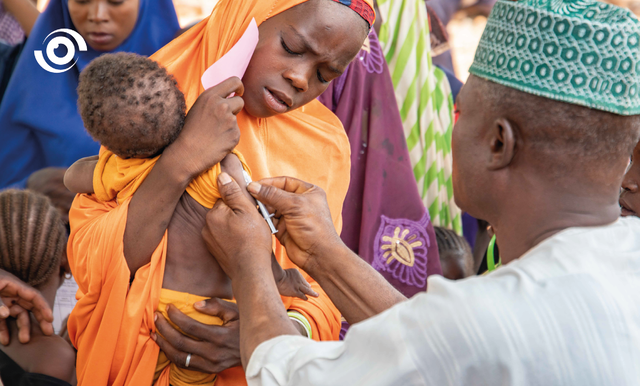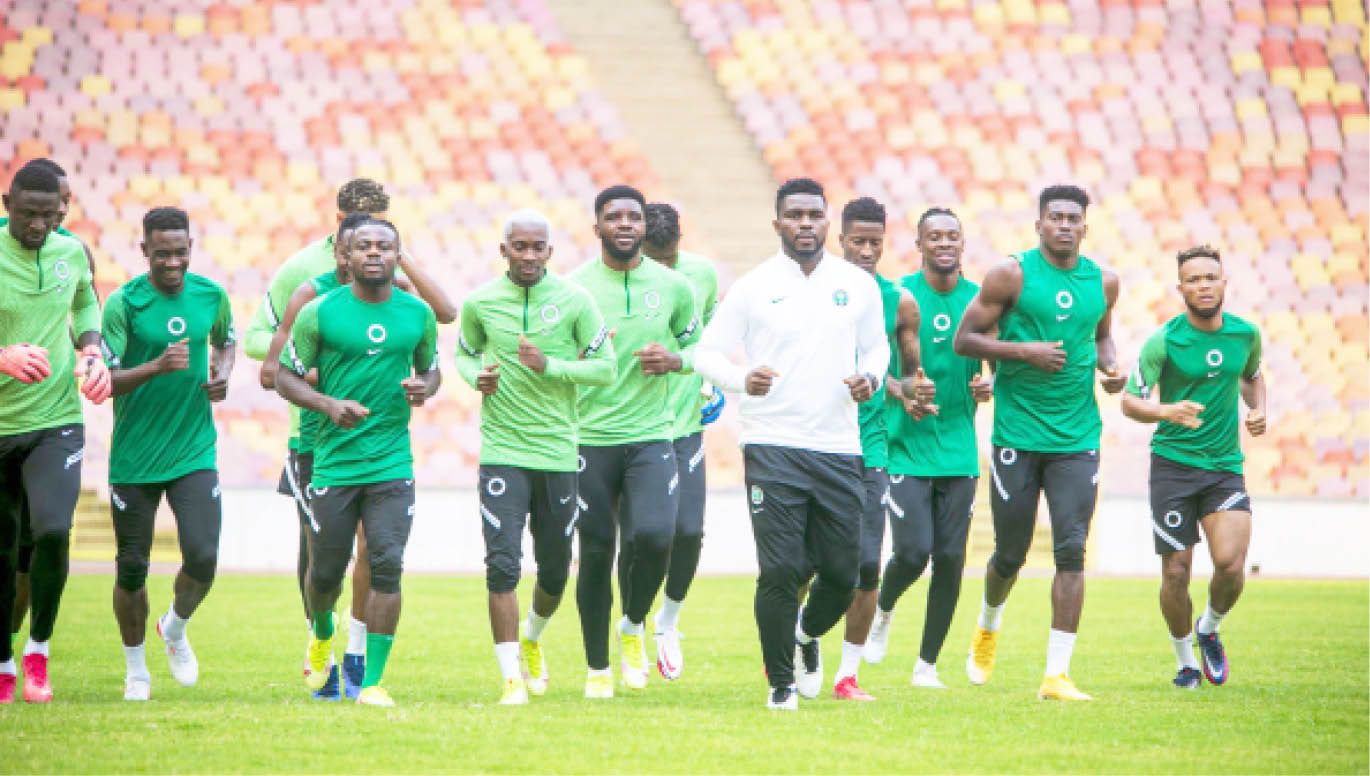
Nigeria at a Crossroads: Can the Nation’s Immunisation Drive Survive the Funding Crisis?

Nigeria’s dream of protecting every child through immunisation is facing a test that could define the country’s public health trajectory for years to come. For a nation that has battled child mortality for decades, vaccines have been one of the brightest beacons of progress, steadily lifting millions of children away from preventable diseases such as measles, polio, diphtheria, and pneumonia. But today, that progress is under threat as funding gaps begin to widen, raising fears that without sustainable financing, Nigeria’s hard-won gains in immunisation coverage could stall, or worse, reverse. The story of Nigeria’s immunisation programme is one of resilience and determination, but it is also a reminder of the fragile balance between ambition and resources. At the heart of the issue lies a simple but daunting question: can the country bridge the gap and secure every child’s future, or will lack of investment cripple a programme that has already saved countless lives?
Over the past two decades, Nigeria has witnessed a transformation in its child health outcomes thanks to global partnerships, domestic reforms, and community-driven campaigns. At one time, Nigeria was the global epicenter of wild poliovirus, a disease that left thousands of children crippled and communities devastated. Through a relentless vaccination effort supported by partners like Gavi, the Vaccine Alliance, UNICEF, the World Health Organization, and donor nations, Nigeria was declared wild polio-free in 2020, a historic milestone that inspired hope that similar progress could be achieved against other vaccine-preventable diseases. In rural villages and urban centers alike, health workers, often women carrying coolers of vaccines across long distances, became the silent heroes of a national effort to protect the next generation. Immunisation rates climbed, diseases that once spread unchecked began to decline, and a sense of possibility emerged that perhaps Nigeria could finally win its war against child mortality.
But the promise of those achievements is now hanging in the balance. For years, Nigeria’s immunisation programme has relied heavily on donor funding, with international partners shouldering much of the cost of vaccine procurement, logistics, and distribution. While this arrangement enabled rapid progress, it also created a structural vulnerability: what happens when donors reduce their commitments or shift focus to other pressing global crises? That question is no longer hypothetical. As donor support begins to wane, Nigeria finds itself under mounting pressure to increase domestic financing for immunisation, yet budgetary allocations remain inadequate, inconsistent, and in many cases, delayed. The result is a growing funding gap that threatens to leave millions of children unvaccinated and exposed to diseases that should by now be part of the past.
The implications of stalled immunisation progress are profound. Every year, vaccine-preventable diseases claim the lives of Nigerian children, cutting short futures that might have blossomed. Beyond the human toll, the economic cost of inaction is staggering. Outbreaks of diseases like measles not only overwhelm hospitals and health centers but also erode community trust in the health system. Parents lose income as they care for sick children, and health workers are stretched thin responding to preventable emergencies. The ripple effects extend far beyond healthcare, weakening education, productivity, and national development. In contrast, studies have shown that immunisation is one of the most cost-effective public health interventions, yielding a return on investment that is difficult to match. In short, the choice facing Nigeria is not whether it can afford to fund immunisation, but whether it can afford not to.
This funding crisis comes at a time when Nigeria is also grappling with broader economic challenges. Inflation has eroded household incomes, debt servicing consumes a significant portion of government revenue, and oil earnings, once the backbone of the national budget, have become increasingly unpredictable. These pressures make it tempting for policymakers to relegate health to the background, but experts warn that such an approach is both short-sighted and dangerous. Immunisation is not just another budget line; it is the foundation of child survival and a prerequisite for national prosperity. Neglecting it could undo years of progress and push Nigeria further behind global health goals, particularly the Sustainable Development Goals (SDGs), which call for universal health coverage and an end to preventable child deaths by 2030.
Yet, amid the uncertainty, there are reasons for cautious optimism. Nigeria has demonstrated in the past that with political will and coordinated action, remarkable progress is possible. The polio eradication effort was once dismissed as impossible, yet it was achieved. What is needed now is a similar level of commitment to sustainable immunisation financing. This means not only increasing budgetary allocations at the federal and state levels but also ensuring that funds are released on time, transparently managed, and directed towards strengthening the systems that deliver vaccines to the last mile. Community engagement remains critical, as local leaders and health workers are often the bridge between government policy and household decisions. Moreover, innovative financing mechanisms, such as earmarked taxes, private sector contributions, and public–private partnerships, could help Nigeria diversify its funding sources and reduce reliance on external aid.
Civil society groups and health advocates have also been vocal in calling for accountability. They argue that the lives of Nigerian children cannot be subjected to the uncertainties of donor priorities or bureaucratic delays. Every child, regardless of where they are born, deserves access to life-saving vaccines. It is a moral imperative as much as it is a development strategy. Parents in rural Sokoto or bustling Lagos should not have to worry about whether the government will deliver on its promise to protect their children. The credibility of the health system—and by extension, the trust between citizens and state—depends on it.
International partners, too, are watching closely. While they may not be able to indefinitely bankroll Nigeria’s immunisation programme, they remain willing to support a country that demonstrates ownership and commitment. The message is clear: Nigeria must take the driver’s seat, while partners play a supportive role. Failing to do so risks not only the health of millions of children but also Nigeria’s standing as a leader in global health progress. In an interconnected world where disease outbreaks can travel across borders in hours, Nigeria’s immunisation success is not just a national concern but a global one.
As the debate intensifies, one cannot escape the poignancy of the moment. In communities across Nigeria, parents line up at health centers with their babies, trusting that the government will keep its end of the bargain. Health workers, despite meager pay and difficult conditions, continue to show up with dedication, carrying vaccines on motorcycles, boats, and on foot to reach children in the hardest-to-reach areas. Their work is a reminder that the real measure of a nation’s priorities lies not in speeches but in budgets, not in promises but in policies, and not in intentions but in action.
Nigeria is at a crossroads. The path it chooses will determine whether it builds on its hard-won immunisation gains or slides backward into a cycle of preventable disease and child mortality. The stakes could not be higher. Every child left unvaccinated is a life at risk, a future compromised, a dream deferred. But every child vaccinated is a step towards a healthier, stronger, and more prosperous Nigeria. The choice is stark, but the solution is clear. The question remains: will Nigeria rise to the occasion and secure the future of its children, or will funding gaps dim the light of progress? The answer will not only shape the destiny of millions of children today but also the legacy of the nation tomorrow.


